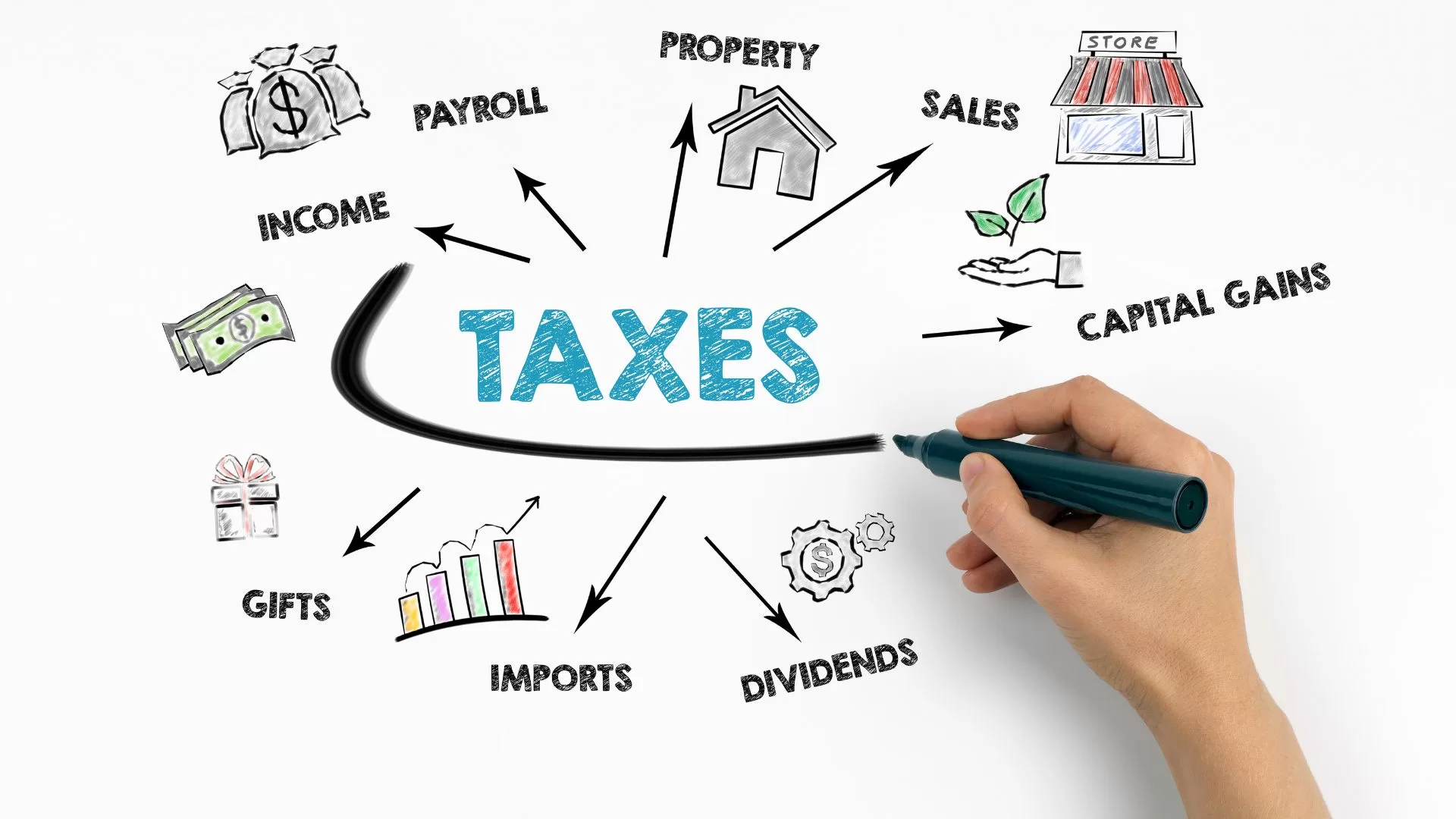We found 0 results.
View results

The Indian property market offers exciting opportunities for investment and building wealth. But along with the potential for profit comes the responsibility to understand how taxes can impact your bottom line. This blog post dives into two key tax concepts – capital gains tax and income tax – and explores how strategically buying property can be a valuable tool in managing your tax burden.
Understanding Capital Gains Tax in India
Imagine buying a stock or a house, holding onto it for a while, and then selling it for a higher price. The additional money you make from that sale is a capital gain. The Indian government taxes this profit, and that tax is called capital gains tax.
There are two main types of capital gains to be aware of:
Short-Term Capital Gains (STCG): If you sell the asset within a specific holding period (usually one year), the profit is considered short-term. The tax rate for STCG can be 15% or your income tax slab rate, depending on the type of asset.
Long-Term Capital Gains (LTCG): If you hold the property for longer than the holding period, the profit becomes long-term. LTCG generally benefits from a lower tax rate compared to STCG.
Understanding Income Tax in India
Income tax is the tax you pay the government on your earnings throughout the year. This includes your salary, interest income, rental income, and yes, capital gains. The tax rate depends on your total income and falls into different slabs. The higher your income, the higher the tax rate you’ll pay.
How Buying Property Can Help You Manage Taxes
Real estate can be a strategic tool for managing capital gains tax and income tax in India. Let’s see how:
Reduced LTCG Tax for Specific Properties: Long-term capital gains on certain properties like equities held over one year can be taxed at a lower rate (around 10% on gains exceeding Rs. 1 lakh). This makes them a potentially tax-efficient investment compared to other assets.
Exemption Through Reinvestment: Did you know you can save on capital gains tax by reinvesting the profits from selling a property into a new one within a specific period? This can be a great way to defer the tax liability and potentially grow your wealth further through real estate appreciation.
Deductions on Rental Income: If you decide to rent out the property, you can deduct some expenses (maintenance, property taxes) from the rental income, effectively reducing your taxable income. This can be a significant benefit, especially if you manage your rental property efficiently.
Remember, Consulting a Tax Advisor is Key
Tax laws can be intricate and subject to change. While this blog is here to educate, it’s always advisable to consult a qualified tax advisor for personalized advice on how buying property can impact your specific situation. They can help you navigate the latest regulations, understand the holding periods for different assets, and create a tax-efficient strategy for your property investments. Some construction companies offer an expert team of legal and tax advisors to help you in making these decisions. Placing your trust in companies like HM Constructions, which have built a reputation through decades of delivering the best, is important to keep your investments safe.
By understanding capital gains tax, income tax, and how property ownership can be leveraged, you can make informed investment decisions and potentially minimize your tax burden.
Ready to make informed property investment decisions and minimize your tax burden? Consult our expert team of legal and tax advisors at HM Constructions.
Contact us today at 9180 42 555555 or visit hmconstructions.com to ensure your investments are in safe hands.